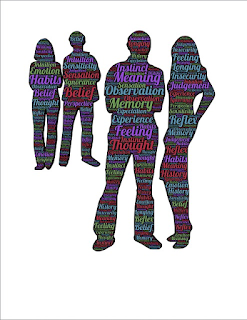The Quran is one of the most silent books I have ever experienced. You stare at it, and it will keep its silence. You will never find a book so quiet and silent than this one. The fact that the book has a whole universe to tell you makes it ever more silent. This silence often piques as in "Why doesn't it speak its wisdom to me?" Well, it would never, until you show some love and respect towards it. The only fee, the only prerequisite, to get the most out of this book is your little effort and love. Then just wait for it, it will speak. The Quran, the holy Quran, its holiness might not appear in its physicality, but it do reverberates in you - in your voice, and then straight into your heart. The Quran, when read (as it should be), its essense starts resonating in your voice, and that is when you will notice its wisdom coming to you, and through you benefiting the others around you.
Salah and the Quran are quite interconnected. If you want to be consistent in Salah, you better recite the Quran both aloud and silently, and on the other hand if you want to really understand the Quran, you need to be consistent in Salah. So, they are tightly inter-related activities.
Many people say things like, well I offered Salah and recited the Quran, nothing really changed in my life. I am still as much of an evil as I was before. Or, my friend started praying, he is now even more evil than before.
On the point of adopting a good habit I would first comment on adopting a bad one. Imagine that you are an average well-mannered son of your parents. You have some basic good habits like a planned daily routine, fixed timings for studies and dinner and all that. Now, you are starting to leave the good path and want to smoke cigarettes. What is the first thing that will be affected in your life? It's your routine. You will start developing a strange routine of your own (that nobody in your house taught you) and you will start finding time spots - the best times to smoke secretly. (I am not advocating or helping smoking habits here, I am just telling you what happens when a child secretly adopts a bad habit in the house). For just one wrong habit, you start re-working on your daily routine. The same goes for adopting one good habit. You need to create a sort of mise-en-scene, an environment, an atmosphere, a set of other tiny good habits (like avoiding interaction with opposite genders even at a very basic level), to support your primary good habit (which is in this case, praying and reciting the Quran). In Sha Allah, this will help you. You cannot pray 5 times a day yet continue the corruption, talk evil, bribe, keep doing shameful things with your classmates, neighborhood or Facebook "friends", and at the end of the day say "praying isn't helping me to keep away from evil".
We have heard this cliche "no one can be an angel or prophet, we are bound to sin and fall into the trap of Iblees (satan)". You know what Allah says to the Satan in the Quran, that those people who are His slaves, you (satan) cannot do any harm to them. And to know how to become the Allah's servant, read the Quran; you will know those basics of life. Read Surah Kahf, Surah Baqarah, and whichever Surah you like. Start from somewhere, and start collecting the clues that will lead you to becoming the Allah's servant.
You need to slowly (but strictly) remove the bad habits from your life, one by one, pixel by pixel, and start adding good habits in place. Do a self-assessment everyday, whether you are better than the previous day or not. And In Sha Allah, your prayers will beautify and your recitations will start making meanings to you.








